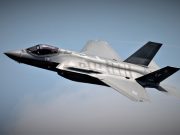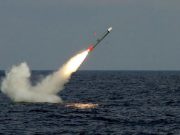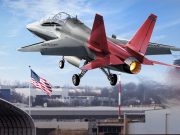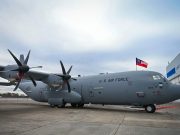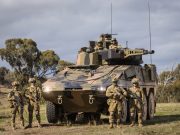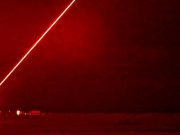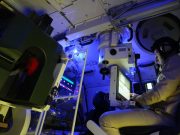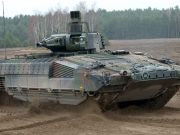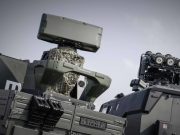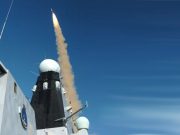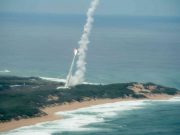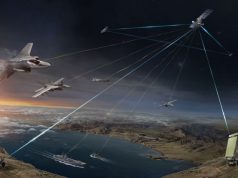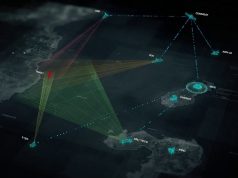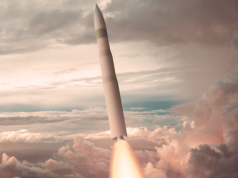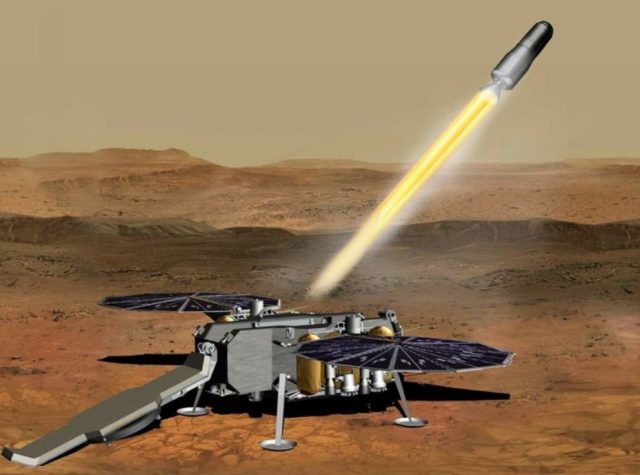
The US National Aeronautics and Space Administration (NASA) has selected Northrop Grumman to provide solid propulsion systems and controls for NASA’s Mars Ascent Vehicle (MAV) that will be launched to Mars in 2026.
The MAV will launch together with a “fetch” rover that will collect soil and rock samples prepared by NASA’s Perseverance rover, which launched in July 2020 and landed on Mars February 18.
“We are committed to help build the rockets that will orbit the samples Perseverance collects so they can be returned to Earth,” said Rebecca Torzone, vice president, missile products, Northrop Grumman. “We play a vital role with NASA, as we have for decades, by providing key propulsion and control subsystems in support of human spaceflight and robotic exploration missions.”
Northrop Grumman will provide its STAR first and second stage solid rocket motors, the first stage thrust vector control system and the second stage spin rockets for the MAV. Once the MAV and fetch rover arrive on the Red Planet’s surface, the fetch rover will spend approximately 18 months collecting samples and transferring collection tubes to the MAV for storage.
Upon mission completion, the MAV will launch back into Mars’ orbit to rendezvous with the Earth Return Orbiter. Northrop Grumman’s propulsion and control system’s performance is critical to achieving a precise rendezvous orbit.
Similar to the advances scientists have made in studying samples from the moon for decades, current and future NASA scientists will study the samples returned from Mars to learn more about the Red Planet’s composition. The overall campaign also supports efforts to one day send humans to Mars. Work under the contract will be performed in Elkton, Maryland, and San Jose, California.
Historically, Northrop Grumman has also provided mission critical components on previous Mars Rovers missions. The Perseverance Rover utilizes the LN-200S inertial measurement unit, which provides attitude and acceleration information for guidance, as well as pressurant tanks for the Rover’s gas dust removal tool and propellant tanks for the Rover’s controlled descent element.




